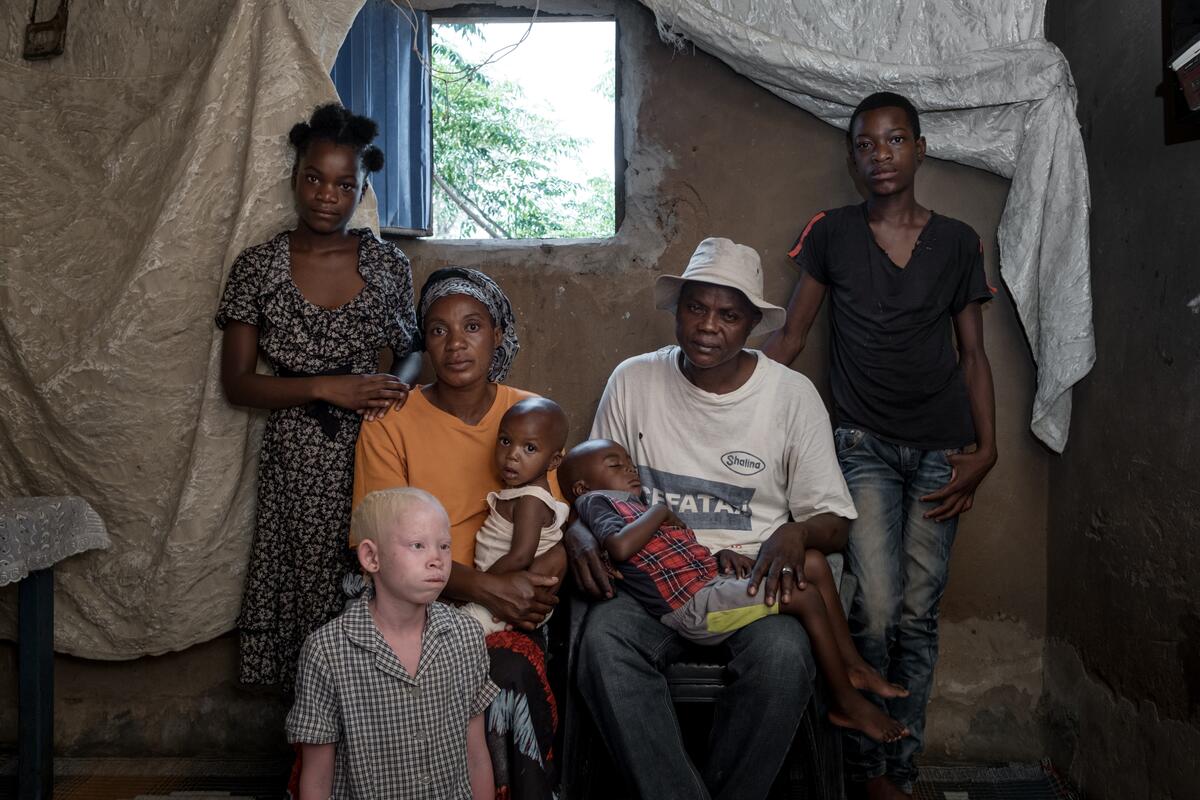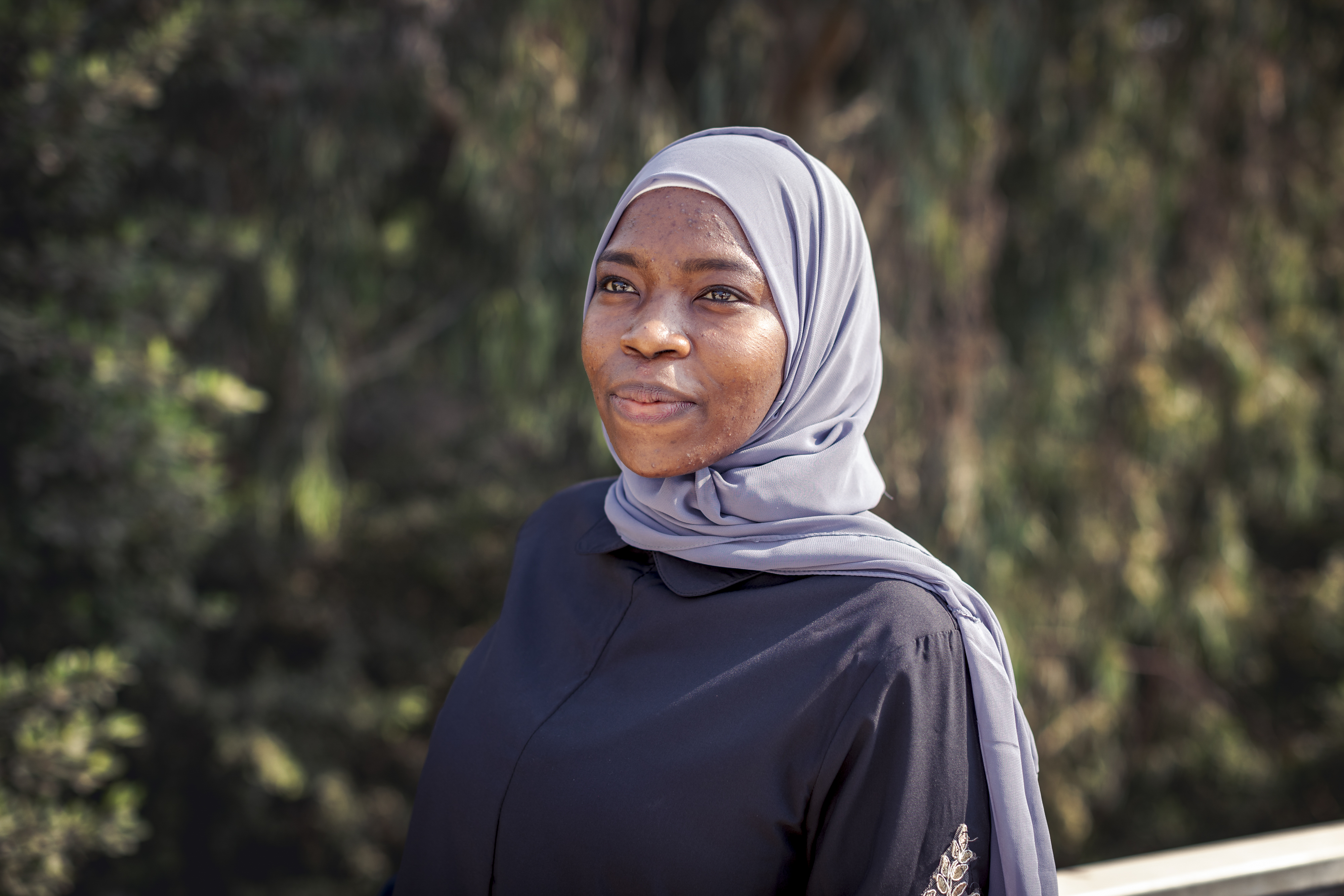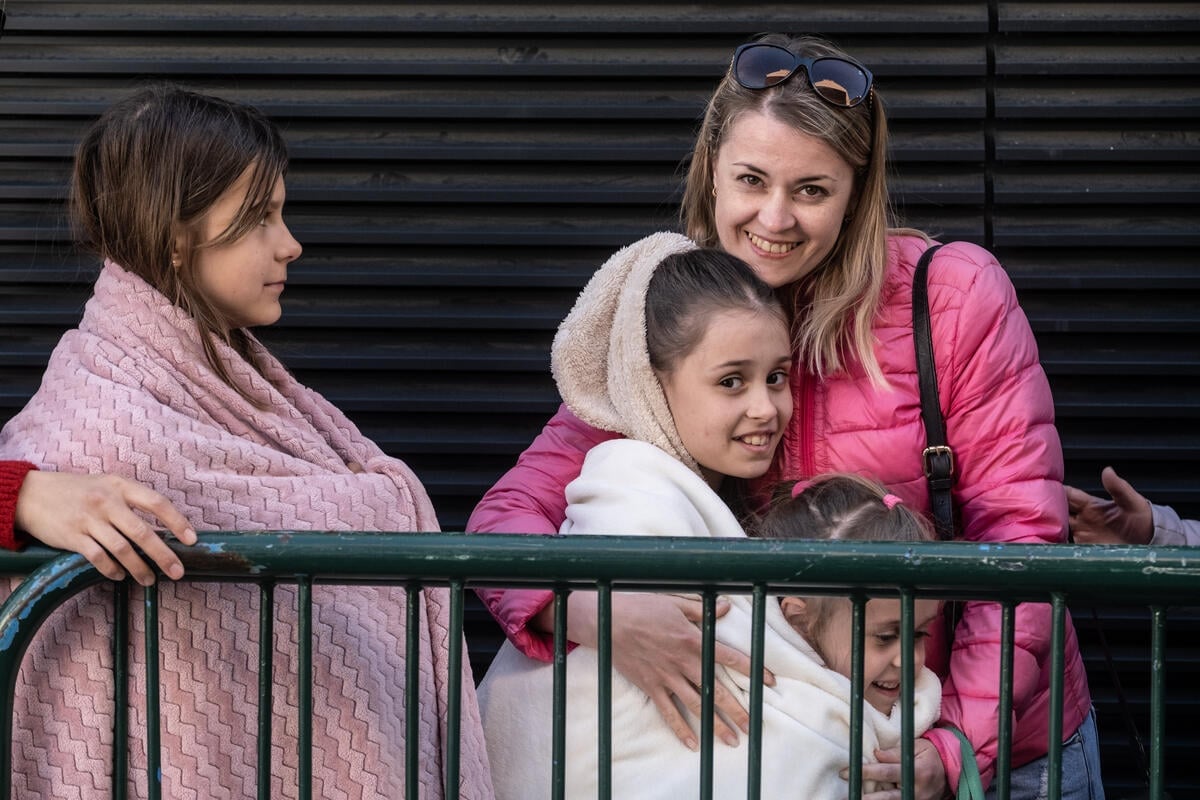Food festival gives French schoolchildren a taste of refugee life

Food festival gives French schoolchildren a taste of refugee life
It is a special day in the canteen at the Collège Louis Pergaud in the Normandy town of Dozulé. The room is brightly decorated and packed with more than 100 students finishing lunch.
The walls are covered with posters and information about Yemen, including its traditional food. There are illustrations and facts and figures about the rights of refugee women and girls and the procedures for reuniting families. The tables are decorated with cut-out signposts showing the distances to Iran, Sudan, Syria and Yemen.
The children turn and applaud as chef Saber Hajaj comes out of the kitchen. Saber, a refugee from Yemen, has prepared today’s menu of chicken and rice seasoned with turmeric and Middle Eastern spices. For the children, these are new flavours.
“When I cook dishes from Yemen here in France, I am also creating a bridge between the countries,” says Saber. “Doing this makes me especially happy.”
The event was part of the 2017 Refugee Food Festival, designed to allow refugee chefs to showcase their skills and share their culinary culture.
This is the first time the festival has come to schools in Normandy with the support of the French department of Calvados. The festival is a citizen-led initiative by a French NGO called Food, Sweet Food and was jointly organized along with UNHCR, the UN Refugee Agency.
Over a week, three refugee chefs from Yemen, Syria and Iran cooked lunch for 1,500 students in four schools in Calvados.
“I will tell my parent that I want to try to cook the same recipe at home.”
The schoolchildren clear away their empty plates but keep the table mats, specially designed for the event, and fold them up to take them home. The mats show a map of Yemen and the distance from France, and give information on the definition of a refugee, how many refugees live in France and the reasons why they were forced to flee their homes.
“I am taking the table mat because I want to show it to my parents,” says Margot, one of the pupils. “I will tell them that it was very, very good and that I want to try to cook the same recipe at home.”
The event, taking place alongside the Bayeux-Calvados Award for war correspondents, is part of a wider programme in the region’s middle schools that includes presentations and conversations with refugees and UNHCR representatives, a virtual reality tour of Za'atari refugee camp in Jordan (entitled “Clouds over Sidra”), cooking lessons and a UNHCR photo exhibition called “The Most Important Thing.”
The initiative has been enthusiastically welcomed not only by the pupils but also by local politicians, education officials, teachers and, of course, the canteen staff.
Among the refugee participants who told their stories to the schoolchildren were Suzanna Kiliani and her husband, Nabil Attar. The two of them fled Syria with their two boys in 2015. One of their sons is now the same age as the pupils at the collège.
Suzanna and Nabil believe it is important to talk to these French pupils about their experiences – why they had to flee, how they came to France and how they have embarked on their new lives. They recall episodes from their life in Syria, such as childhood memories, their wedding day, their family and their careers before war broke out.
They also tell the story of leaving home, their first days in France and how they are trying to integrate.
"I had to leave everything behind so I decided to use my passion in my new life.”
"The only thing they see or hear are news stories that do not give them the real picture,” said Susanna. “So, with my own experiences, I want to give them another story, which might be sad in some ways but in others is full of optimism.”
Speaking to pupils at Charles Létot Middle School in the town of Bayeux a few days earlier, her husband Nabil said that, although their story was full of sadness, he wanted them to see that it was possible to start a new life. In Syria, he worked as a banker but his first job in France was washing cars.
“And now today I am a chef because cooking is my passion and as I had to leave everything behind I decided to use my passion in my new life.”
Such events and encounters create interest, curiosity and understanding among the pupils.
“I didn't know they had to do so many things during their journey and cross so many countries to get to France," says Lea, a middle school pupil.
Margot adds: “It was really great – it makes us want to get to know refugees.”















